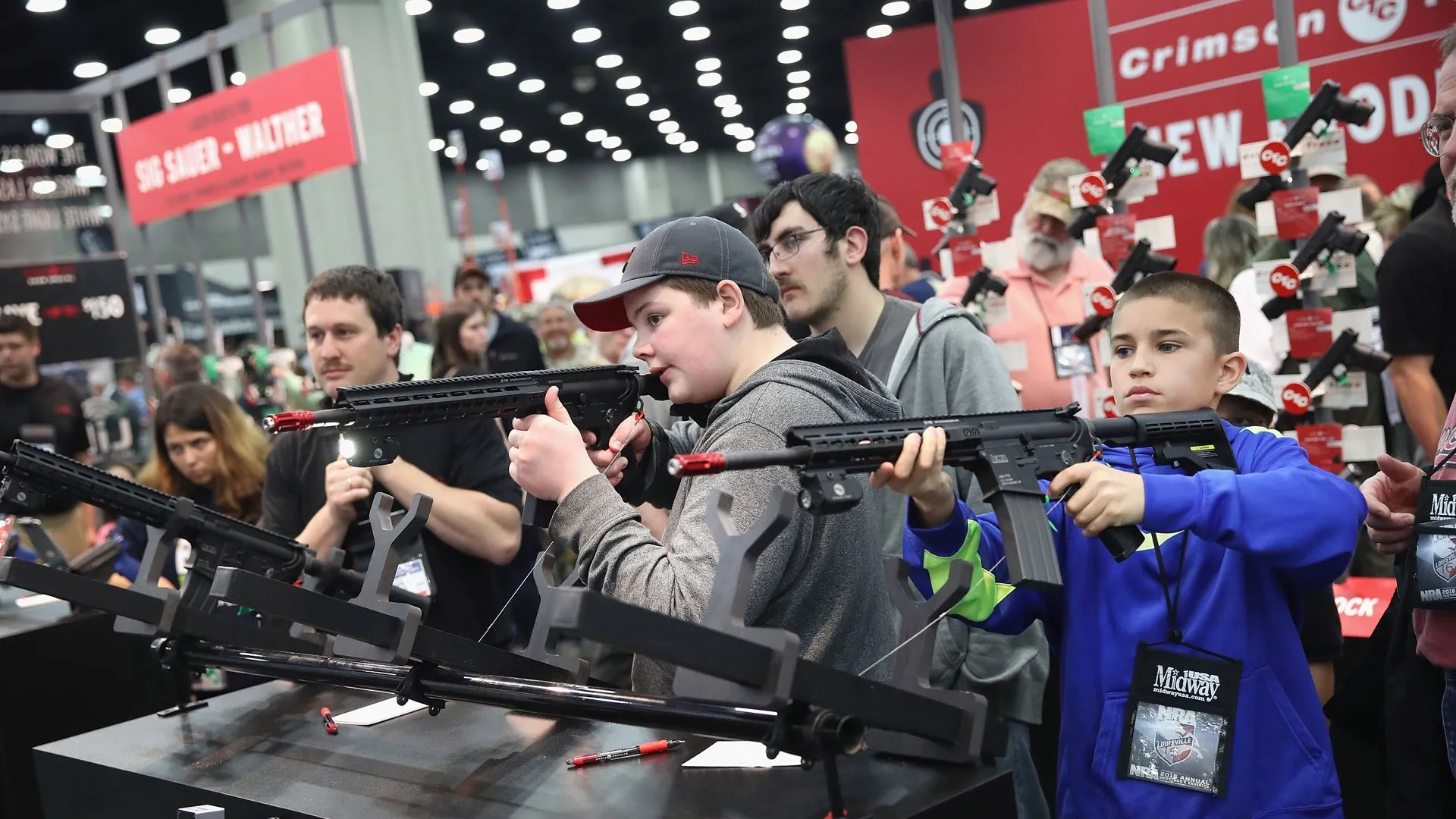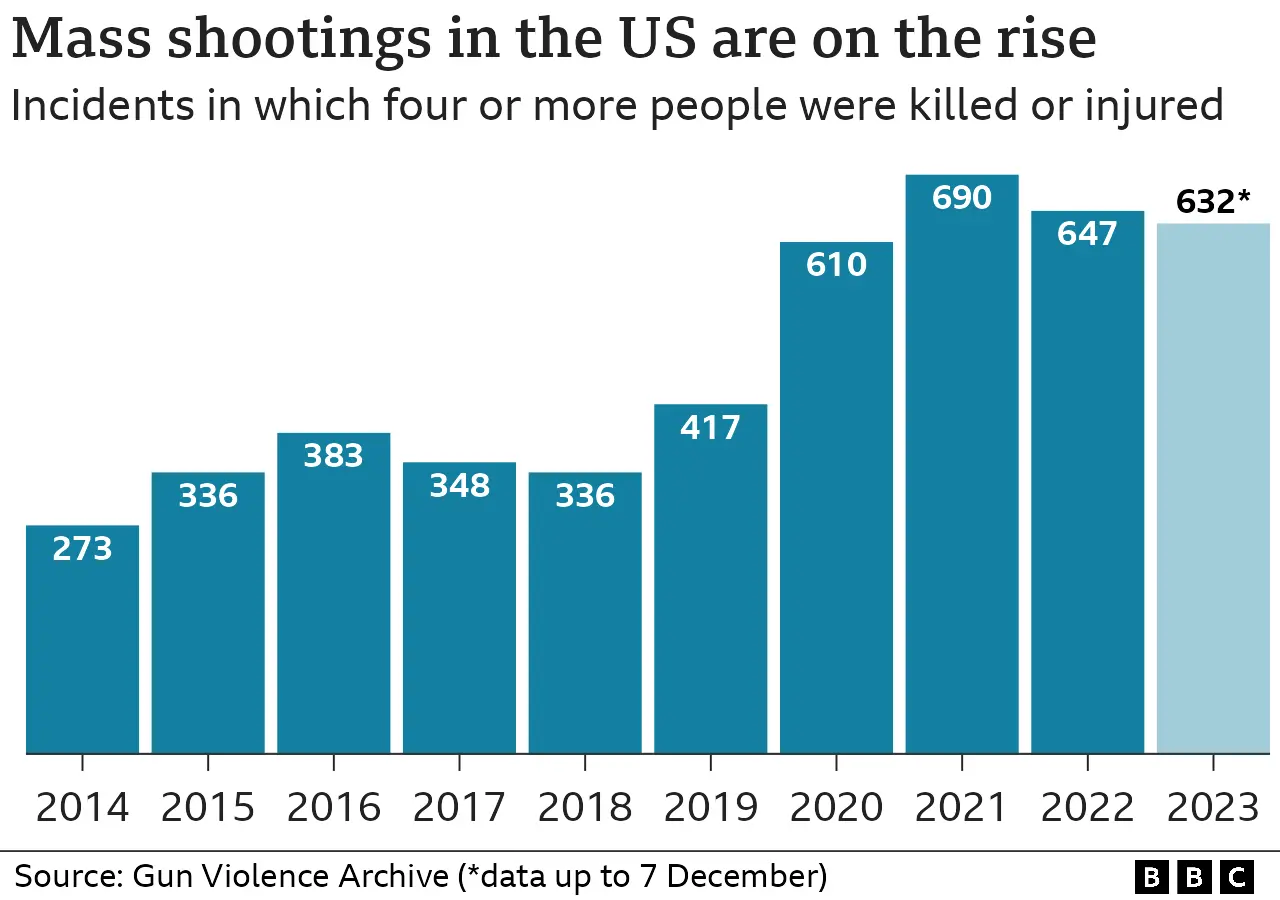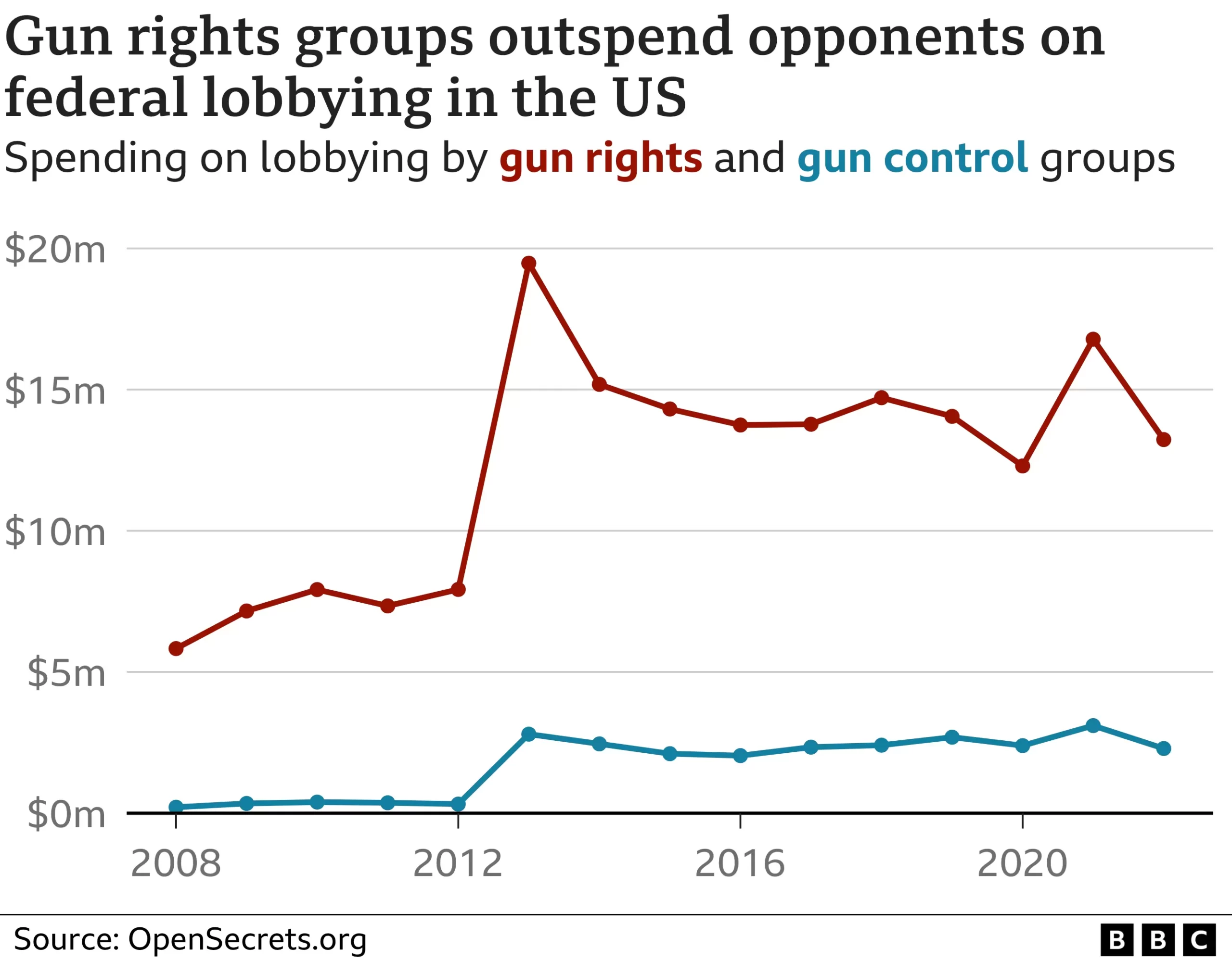On February 14, 2024, 22 people were shot in a mass shooting at the west side of Union Station in Kansas City, Missouri, United States. One person was killed and 21 others were injured, including 11 children. The shooting followed a Super Bowl LVIII victory parade for the Kansas City Chiefs. The issue of guns and their relationship with America is a contentious and deeply complex topic. As a nation with a rich history of firearm ownership intertwined with constitutional rights, cultural practices, and legal frameworks, understanding the nuances surrounding guns in America may be baffling for 90% of the human population but let’s try to break this down to help us understand the 10%.
Historical Context
To comprehend the current state of guns in America, it’s essential to delve into its historical context. Firearms have played a significant role in shaping the nation’s identity, from the colonial era through the Revolutionary War and beyond. The Second Amendment to the United States Constitution, ratified in 1791, enshrined the right of the people to keep and bear arms, further cementing the role of guns in American society.
Beyond their historical significance, guns hold a unique place in American culture. For many, firearms symbolise freedom, self-reliance, and the pioneer spirit. Hunting, shooting sports, and recreational shooting activities are deeply ingrained in American pastimes, contributing to the cultural significance of guns. Additionally, firearms are often associated with notions of protection and security, particularly in rural areas where law enforcement may be limited.

Legal Framework
The legal framework surrounding guns in America is a complex patchwork of federal, state, and local regulations. While the Second Amendment guarantees the right to bear arms, the interpretation and implementation of this right vary widely across different jurisdictions. Federal laws, such as the Gun Control Act of 1968 and the Brady Handgun Violence Prevention Act, impose restrictions on firearm sales and possession, including background checks and licensing requirements.
Gun Ownership Statistics
Understanding the prevalence of gun ownership is essential for grasping the scope of the issue. According to recent surveys, approximately 42% of American adults report owning at least one firearm, with estimates suggesting there are more guns than people in the country. However, gun ownership rates vary significantly by region, demographics, and socio-economic factors, highlighting the landscape of firearm ownership in America.
Gun Violence Epidemic
Despite the cultural and legal significance of guns, America faces a persistent epidemic of gun violence. Mass shootings, homicides, suicides, and accidental shootings continue to plague communities across the nation, prompting calls for action to address this public health crisis. The availability of firearms, inadequate regulation, and social determinants of violence contribute to the complex web of factors driving gun-related incidents. In 2023 alone, the United States experienced 58 mass shootings, according to data compiled by the Gun Violence Archive. These tragic events have left communities shattered and prompted renewed calls for action to address the root causes of gun violence in America.

Mental Health and Gun Access
One critical aspect often overlooked in discussions about guns is the intersection between mental health and access to firearms. Research indicates that individuals with mental illness are not inherently more violent than the general population. Still, untreated mental health conditions, combined with easy access to guns, can increase the risk of harm to oneself or others. Addressing mental health stigma, improving access to treatment, and implementing sensible gun policies are vital steps in mitigating this risk.
Gun Control Measures
Efforts to address the issue of guns in America often center around proposed gun control measures. These initiatives aim to reduce gun violence by implementing various policies, such as universal background checks, assault weapons bans, and red flag laws. While opinions on gun control measures vary widely, evidence suggests that certain policies, such as background checks and safe storage laws, may help prevent firearm-related deaths and injuries without infringing on Second Amendment rights.
The National Rifle Association (NRA) Influence
The National Rifle Association (NRA) is a prominent advocacy group that wields significant influence over gun-related legislation in the United States. With millions of members and a robust lobbying apparatus, the NRA has played a pivotal role in shaping gun policy at both the federal and state levels. The organization’s political contributions and grassroots mobilisation efforts have often resulted in the defeat of proposed gun control measures and the passage of pro-gun legislation.
NRA and Gun Lobbying Donations to Republican Re-election Campaigns
As much as the NRA may be on the verge of financial ruins, a significant aspect of the NRA’s influence lies in its financial contributions to political campaigns, particularly those of the Republican Party. According to data from the Center for Responsive Politics, the NRA has consistently been one of the top contributors to Republican candidates for Congress and the presidency. These donations, along with the NRA’s endorsement and support, have helped bolster the electoral prospects of pro-gun candidates and maintain Republican control over legislative bodies.

Success Stories: Australia and England
Countries like Australia and England have implemented strict gun control measures in response to mass shootings, resulting in significant reductions in gun violence. Following the Port Arthur massacre in 1996, Australia enacted sweeping gun reforms, including a ban on assault weapons and a mandatory buyback program. Similarly, after the Dunblane massacre in 1996, the UK introduced stringent firearm regulations, leading to a substantial decline in gun-related deaths. These examples demonstrate the effectiveness of proactive gun control measures in preventing mass shootings and saving lives.
It’s Time for Common Sense Gun Control Laws
In light of the ongoing epidemic of gun violence and the significant influence of pro-gun lobbyists like the NRA, it’s clear that bold action is needed to address this pressing issue. It’s time for Americans to come to their senses and ask: how many more need to die senselessly in another mass shooting before meaningful change is enacted? The only way to ‘stop a bad guy with a gun is not a good guy with a gun – but by banning guns.’
Introducing common sense gun control laws, such as universal background checks, closing loopholes, and banning assault weapons, is not only necessary but long overdue. By prioritising public safety while respecting individual rights, we can work towards creating a safer and more secure future for all Americans.
Enough is Enough America. The rest of the world is watching. Make the change the rest thats right by your people.
RV
